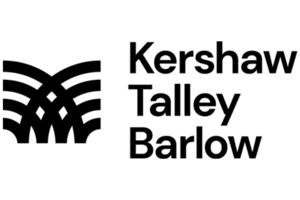
Tylenol and Autism: Statement from Kershaw Talley Barlow's Scientific Director
SACRAMENTO, Calif., Oct. 15, 2025 /PRNewswire/ -- In recent weeks, public attention has intensified around the scientific literature examining possible associations between prenatal Tylenol (acetaminophen) exposure and neurodevelopmental outcomes including autism spectrum disorder (ASD) and attention-deficit/hyperactivity disorder (ADHD). The public discourse surrounding this research, and the related, ongoing federal litigation against the manufacturer of Tylenol, deserves careful, measured, and evidence-based discussion.
First, it is important to acknowledge that public trust in scientific communication has been deeply tested in recent years. The delivery of information surrounding health risks has been, at times, poorly managed and inconsistently presented, often blurring the line between science, politics, and personality. That failure in communication has had profound and lasting public health consequences, especially for women and families seeking clear, reliable guidance from government and scientific institutions.
With respect to acetaminophen and neurodevelopmental outcomes, it is true that not all studies reach the same conclusions. Some large epidemiological investigations have failed to find a statistically significant association between prenatal acetaminophen exposure and later neurodevelopmental diagnoses. However, a larger number of well-designed studies—employing diverse methodologies, populations, and data sources—have reported significant associations. Importantly, existing studies and data address only in utero exposure to acetaminophen, not exposure occurring after birth or during adulthood. Confusing these distinct exposure periods leads to material misinterpretation of the scientific issue.
Stakeholders, including scientists, lawyers, and judges, should be encouraged to review these studies directly, and in consultation with experts, with a focus on understanding the role of potential biases, confounding variables, and modeling parameters that can influence results. Honest, critical review of these data is not only welcome, but necessary to advance our collective understanding and refine future research questions. In this context, the U.S. Food and Drug Administration (FDA) and its scientists have been prudently cautious. Their recent public messaging has reflected the precautionary principle—a recognition that, while causality has not been conclusively established at this time, sufficient concern exists to warrant careful evaluation and responsible communication, including initiating the process for a label change to reflect evidence about this potential risk.
Science advances through reasoned disagreement. Reasonable scientists can and do interpret the same body of evidence differently. The same applies to experts serving on opposite sides of litigation. Such debate is not a sign of weakness, but rather of a healthy scientific ecosystem—one that thrives on diverse perspectives, open dialogue, and humility in the face of uncertainty. The key is to engage with data and arguments on their merits, free from prejudice or preconception.
History provides us useful perspective. It took the FDA over four decades from the initial publication of data linking acetaminophen to liver failure to add a general hepatotoxicity warning to Tylenol's label in 2009. Even then, disagreement persisted among reasonable and well-intentioned scientists. Similarly, Depakote received a neurodevelopmental warning in 2013, based on a smaller and more conflicted body of evidence at that time than currently exists for acetaminophen. In both cases, regulatory evolution reflected the gradual alignment of scientific consensus, not a rush to judgment.
Finally, it is deeply concerning to see personal attacks directed at Dr. Andrea Baccarelli, MD, PhD, Dean of the Harvard T.H. Chan School of Public Health, for his scholarly work on this subject. Dr. Baccarelli's systematic review, which synthesizes the existing evidence on prenatal acetaminophen exposure and neurodevelopmental outcomes, was rigorously peer-reviewed and published in a high-quality scientific journal. His dual role as an expert witness and a primary investigator is entirely consistent with academic practice. Experts are retained to investigate the truth in accordance with their training and methodology—not to reach a predetermined conclusion. Those who have worked with me and my colleagues know that this is the ethical standard we insist upon in all of our engagements.
Dr. Baccarelli's record as a research scientist, educator, and public health leader speaks for itself. His decision to share his findings with the broader scientific community reflects an appropriate sense of academic responsibility and rigor, not bias. While constructive scientific criticism is always welcome and vital, ad hominem attacks have no place in serious discourse. We should all strive to elevate this discussion, not diminish it.
As the federal litigation, public health investigations, and public scrutiny continue, my firm and I remain committed to supporting scientific transparency, open inquiry, and integrity. The questions raised by the acetaminophen literature are complex and consequential. They deserve the same seriousness of purpose and intellectual honesty that we expect of every scientist, jurist, and policymaker engaged in this vital work. I welcome the opportunity to engage with fellow stakeholders in the spirit of truth-seeking.
By William J. Lee, JD, MS, FACE, a nationally and internationally recognized public health leader with unique expertise bridging dialogue and stakeholders at the intersection of epidemiology, law, and policy. An elected Fellow of the American College of Epidemiology (FACE), Mr. Lee leads the Scientific Practice Group of Kershaw Talley Barlow, PC, a nationally recognized complex litigation firm that represents hundreds of thousands of patients in some of the nation's most consequential public health investigations including the Acetaminophen – ASD/ADHD Products Liability Litigation (MDL No. 3043). Mr. Lee may be reached at [email protected].
Media Contact:
Heather Ward
[email protected]
SOURCE Kershaw Talley Barlow






Share this article